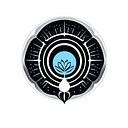Belief 🔄
A paradoxical combination
Dear beloved readers, welcome back to Agama’s Message. Today, I am excited to share a psychology concept that will encourage you to challenge your faith and broaden your understanding. However, this newsletter is different to my usual writing style, & I will be presenting several thought-provoking statements that may lead you to question certain aspects of your life. A humble request to approach this topic with an open mind.
Belief
an acceptance that something exists or is true, especially one without proof.
Is the rose shown in the image above red?
The response we receive is affirmative; it is indeed red.
My subsequent query to you is: Do you have certain knowledge that it is red, or do you hold a belief that it is red?
Indeed, as long as it’s visible, it’s unmistakably a red rose. There is no reason to believe as long as you know.
If you were to close your eyes and visualize a rose, there is a 99% likelihood that you would imagine a red rose. However, it’s important to note that roses come in a variety of colors. But the subconscious mind has associated the color red with roses.
Here is the point I want to explain:
“A fact is what you know.”
“Realization is what you know and have experienced.”
“Imagination is something that you have seen in many forms, but you imagine something specific to the/your subconscious.”
“A belief is something you are unsure of, but you want it to be true.”
“Enlightenment is the state where all morals, beliefs, facts, knowledge, and realizations have disappeared.”
Belief a Scam
Belief is very important to live a smooth life, but it is an obstacle in living a true life.
As long as we believe in ourselves, we will be devoid of truly knowing ourselves.
I would like to pose some additional questions.
Is heaven truly as beautiful as it’s described? Is hell as terrible as it’s portrayed? Do people’s behaviors hinge on the potential risks and rewards of heaven and hell?
The answer to this is mostly yes; each and every one of us is associated with beliefs based on our morals. These beliefs act as our guiding force when making decisions and can either lead to joy or invite grief.
If you haven’t had the chance to read the Newsletter discussing the topic of MORALS, where I delve into the idea of morals being unnecessary, be sure to click here once you’ve finished reading this edition.
Why is it important to know ourselves? When we explore our boundaries and tendencies, our limits and expectations are based on facts. However, if we believe in ourselves, we may be unaware of our limitations, take action based on our beliefs, and face failure.
What is the importance of belief?
Belief is often considered the cornerstone of our existence in a materialistic world, akin to the concept of Maya. It provides us with the necessary framework to navigate life’s complexities and establish our identity. However, upon deeper introspection, one may realize the transient and sometimes illusory nature of these beliefs.
Our beliefs are inherently fluid, constantly evolving based on experiences, knowledge, and perspectives. This fluidity can lead to a dichotomy where beliefs either make us susceptible to gullibility or bind us in rigid orthodoxy. On one hand, beliefs can provide us with direction, purpose, and a sense of self. On the other hand, they can also blind us to alternative viewpoints, restrict our growth, and foster dogmatism.
- Sense of Purpose: Beliefs provide individuals with a sense of purpose and direction in life. (Example: Both a terrorist and a soldier have a purpose)
- Motivation: Beliefs can be powerful motivators. (Example: Both a terrorist and a soldier are motivated)
- Identity Formation: Beliefs contribute significantly to shaping an individual’s identity. They influence how people see themselves, how they relate to others, and the communities they belong to. (Example: Both a terrorist and a soldier)
- Emotional Support: Beliefs can provide emotional support during difficult times. They can offer comfort, hope, and a sense of security. Believing in something larger than oneself can reduce feelings of isolation and foster a sense of connection. (Example: Both a terrorist and a soldier)
- Decision Making: Beliefs guide decision-making processes. They influence the choices people make, the priorities they set, and the actions they take. Beliefs serve as frameworks for evaluating options and making moral judgments. (Example: Both a terrorist and a soldier)
- Social Cohesion: Shared beliefs play a crucial role in building and maintaining social cohesion. (Example: Both a terrorist and a soldier)
- Worldview: Beliefs shape individuals’ worldviews, influencing how they interpret events, understand phenomena, and make sense of their experiences. (Example: Both a terrorist and a soldier)
Questions
Is it accurate to categorize a terrorist as inherently bad and a soldier as inherently good?, or are these judgments merely shaped by our beliefs? What if the belief system of the terrorist is the majority? Would that not make the terrorist the hero? Who is right and who is wrong? Can we truly trust our beliefs?
In one way or another, we are either deluding ourselves or keeping others in delusion, but belief is necessary for this world to be organized.
A monk is a person who transcends beliefs and does not hold any particular belief. Instead, they focus on gaining experience, knowledge, and enlightenment, aiming to reach a state where everything becomes unified and equal, ultimately leading to a state of zero or nothingness.
Closing Remark
I hope you’ve found this edition enlightening with its unique perspective on belief. Don’t forget to subscribe to Agama’s Message, share it with your loved ones, and feel free to reach out to me at agamashakti@gmail.com
With Love,
Yours, Vishal Rajput ❤️
